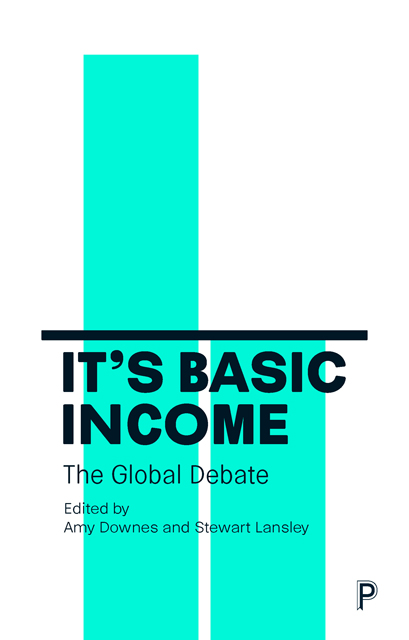12 - A down payment on a new, cooperative economy
Published online by Cambridge University Press: 11 April 2023
Summary
‘In a way, basic income could also be seen as a down payment on a new, cooperative economy, a subsidy for more socially just economic activity, care-oriented work and political organising – much of which receives no compensation in the current economy.’
In 2015, over 60 movement leaders from Canada’s Indigenous rights, social and food justice, environmental, faith-based and labour movements came together to write The Leap Manifesto, a roadmap for how Canada can transition away from fossil fuels in a way that changes the country for the better. The manifesto contains 15 demands to shape the great transition, and the thirteenth relates to a basic income guarantee:
‘Since so much of the labour of caretaking – whether of people or the planet – is currently unpaid, we call for a vigorous debate about the introduction of a universal basic annual income. Pioneered in Manitoba in the 1970s, this sturdy safety net could help ensure that no one is forced to take work that threatens their children’s tomorrow, just to feed those children today.’
So why this most Canadian of entreaties – a call for a debate – in this otherwise-declarative manifesto?
On one hand, for some environmentalists, feminists and advocates of Indigenous rights in this country, the progressive case for a basic income could not be more clear. An income is society’s way of recognising an individual’s contributions to the collective good. A basic income guarantee is therefore an acknowledgement of the value of the unpaid labour that underlies our collective wellbeing: the defence of our water, land and air; care of family and community – or as it’s referred to in The Leap Manifesto, the labour of caretaking ‘of people and the planet.’
A basic income set at a high enough level would also address the indignity and cruelty of our country’s current poverty-alleviation programmes, where in the country’s largest province, Ontario, recipients of social assistance survive on incomes that are up to 60% below the poverty line. As one recipient put it in an interview with the Toronto Star: ‘Someone else decides when and if I eat.’
Canada has also contributed a specific and fascinating chapter to the history of basic income.
- Type
- Chapter
- Information
- It's Basic IncomeThe Global Debate, pp. 68 - 72Publisher: Bristol University PressPrint publication year: 2018

